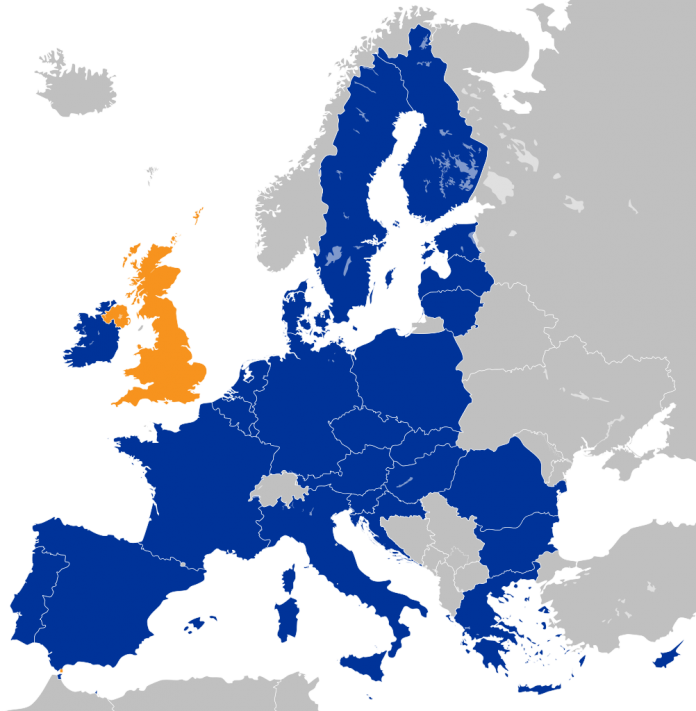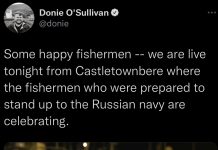The Brexit deal struck in Brussels would involve Stormont giving ongoing consent to any special arrangements for Northern Ireland. It would not be the unionists’ veto demanded by the DUP (Democratic Unionist Party) – instead the arrangements could be approved by a straight majority, and significantly there would be no hard border on the Island of Ireland.
Pro-EU parties have a majority at Stormont. It would continue to follow EU rules on food safety and product standards.
The DUP has already accepted that Northern Ireland would have to align with some EU rules to avoid a hard border.
The North would also leave the EU customs union. But EU customs procedures would still apply on goods coming into Northern Ireland from Great Britain in order to avoid checks at the border. Stormont would have to approve those arrangements on an ongoing basis.
Approval would involve a straight-forward majority, which would keep the special arrangements in place for four years.
Alternatively, if the arrangements are approved by a majority of nationalists and a majority of unionists, they would remain in place for eight years – importantly that would incentivise a cross-community consensus.
Taoiseach Leo Varadkar said of the deal, “What we have is a revised agreement, a new solution, a unique solution which recognises the unique history of Northern Ireland, different from the backstop, more likely to be used to come into force and could become permanent, but only with the consent of the elected representatives Northern Ireland.”
If the Northern Ireland Assembly voted to end the arrangements there would be a two-year notice period, during which the UK and the EU would have to agree ways to protect the peace process and avoid a hard border.There is no fallback position in case the two sides cannot find a solution.
If a vote was not held – by choice or because the assembly was not sitting – then the government has committed to finding an “alternative process”. The EU believes that replaces the backstop – which would have lasted “unless and until” an alternative was found – with arrangements that are sustainable over time and are democratically supported, as requested by the UK.
Leaving the EU was not the choice of the majority of residents in the North and probably even more now, given the mess it has turned into. But the important thing is that there will be equality in the North in any future decisions.


















